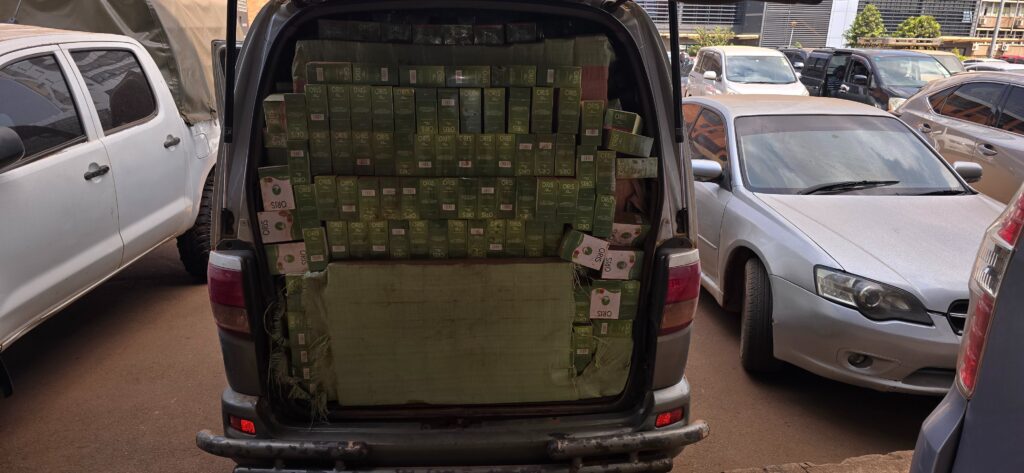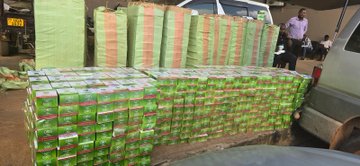The Private Sector Foundation Uganda (PSFU) is calling for enhanced action against illicit trade in the country, emphasising that its continued proliferation “undermines economic stability, endangers consumers, and deprives the country of much-needed tax revenue.”
This follows the Uganda Revenue Authority’s (URA) destruction of 37 tons of illicit cigarettes worth Ush1.6 billion at Luwero Industries Limited in Nakasongola District on December 18, 2024.
Whilst commending URA for sending a strong message through this action, PSFU noted that the move “should herald an all-out offensive against criminals involved in illicit trade.”
Stephen Asiimwe, PSFU Chief Executive Officer, stated: “This significant action by URA is very welcome and should now be followed by the implementation of robust and sustained enforcement mechanisms against suspects involved in illicit trade. Recent independent third-party tobacco industry research shows that the illicit tobacco trade has soared to record levels and now accounts for more than 30% of cigarettes sold in Uganda. This essentially means that three in every ten cigarettes on the market have not paid tax and do not comply with the tobacco control laws of Uganda. Further, illicit trade has impacted several other sectors such as fuel, beverages, alcohol, human and animal drugs, agricultural inputs, and food.”
In 2020, URA stated that “smuggling alone deprives the country of about Ush 985 million in tax revenue every day.”
According to Euromonitor, two out of three alcoholic drinks sold in Uganda are illicit, with this growing at almost 10% annually and depriving the fiscus of more than Ush17 billion in tax revenue annually.

In June 2024, a joint operation led by the National Drug Authority (NDA) of Uganda and the Pharmacy and Poisons Board (PPB) of Kenya resulted in the seizure of over 100,000 units of unauthorized, falsified, substandard, or illicitly manufactured pharmaceutical products.
Meanwhile, in the agricultural sector, which holds significant potential for poverty reduction, the National Bureau of Standards reports that “30-40% of seeds sold in Uganda are fake.”
“Illicit trade is a deadly plight on our economy, with the private sector bearing the brunt through loss of market share, job opportunities, and investments due to unfair competition. Additionally, illicit trade deprives the government of vital revenue for financing public services such as education and infrastructure, and fuels organized crime. We are deeply concerned about the overall damage caused by illicit trade and stand ready to support government efforts in eliminating this menace,” said Asiimwe.
The PSFU is calling for a multi-stakeholder approach to strengthen the fight against illicit trade, including stronger multi-agency enforcement of existing anti-illicit trade laws, including increased surveillance and resource allocation at border points and within the domestic market, as well as more robust policing and stiffer penalties and public awareness, to educate communities about the dangers of engaging in or supporting illicit trade.
Asiimwe concluded: “Defeating illicit trade is pivotal to Uganda’s Vision 2040 agenda, which seeks to advance our country to middle-income status. We urge all stakeholders—government, private sector, and the public—to unite against illicit trade. Together, we can foster a business environment where fair trade thrives, and economic development is inclusive.”








